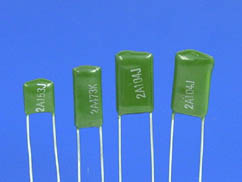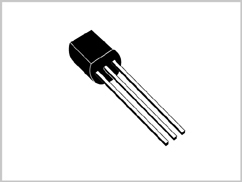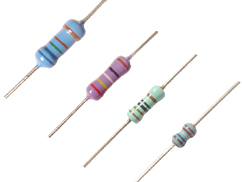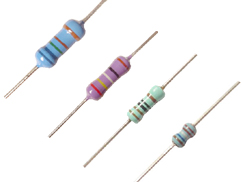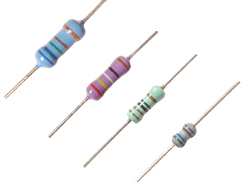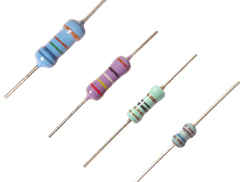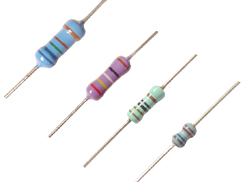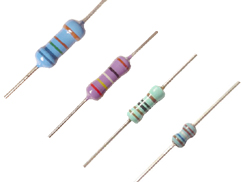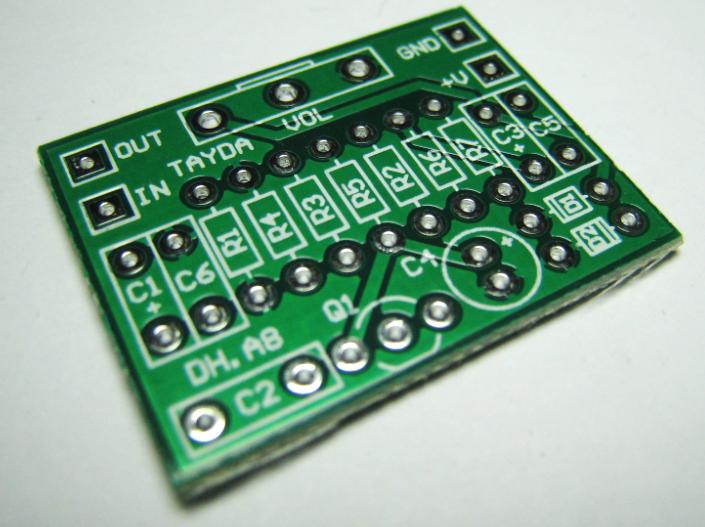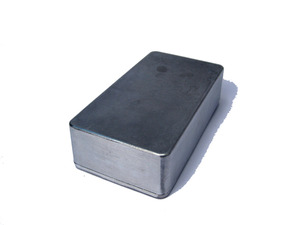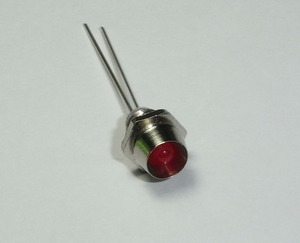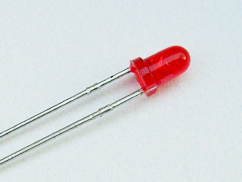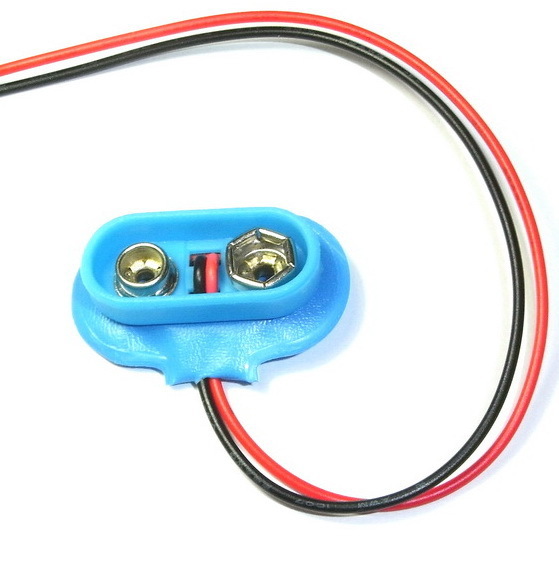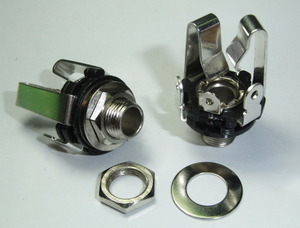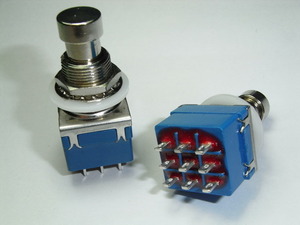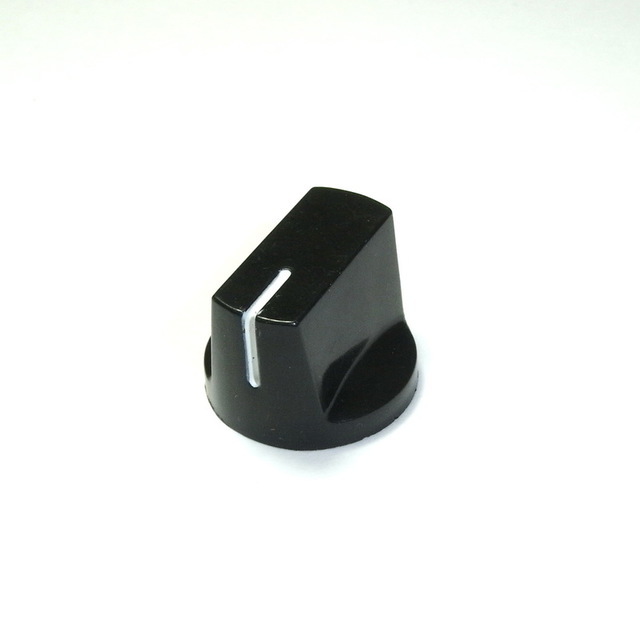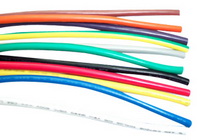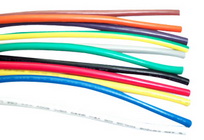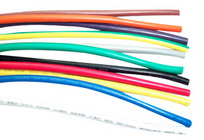Linear Power Booster
This pedal is the classic LPB booster, used for extra boost and definition. It will increase the gain and saturation of your amp.Steps
Categories
Status: Active
Designators and components Step 2 of 5
PCB DESIGNATORS
PCB GUITAR BOOST PCB
Resistors
R1 1M 1M OHM 1/4W 1% METAL FILM RESISTOR
R2 470k 470K OHM 1/4W 1% METAL FILM RESISTOR
R3 Jumper
R4 47k 47K OHM 1/4W 1% METAL FILM RESISTOR
R5 390 390 OHM 1/4W 1% METAL FILM RESISTOR
R6 10k 10K OHM 1/4W 1% METAL FILM RESISTOR
R7 Jumper
R8 Jumper
Capacitors
C1 150n 150NF 100V 5% POLYESTER FILM BOX TYPE CAPACITOR
C3 150n 150NF 100V 5% POLYESTER FILM BOX TYPE CAPACITOR
Transistor
Q1 2N5088 2N5088 GERENAL PURPOSE TRANSISTOR
Potentiometer
VOL 100k-A 100K OHM LOGARITHMIC POTENTIOMETER
PCB (LINK)
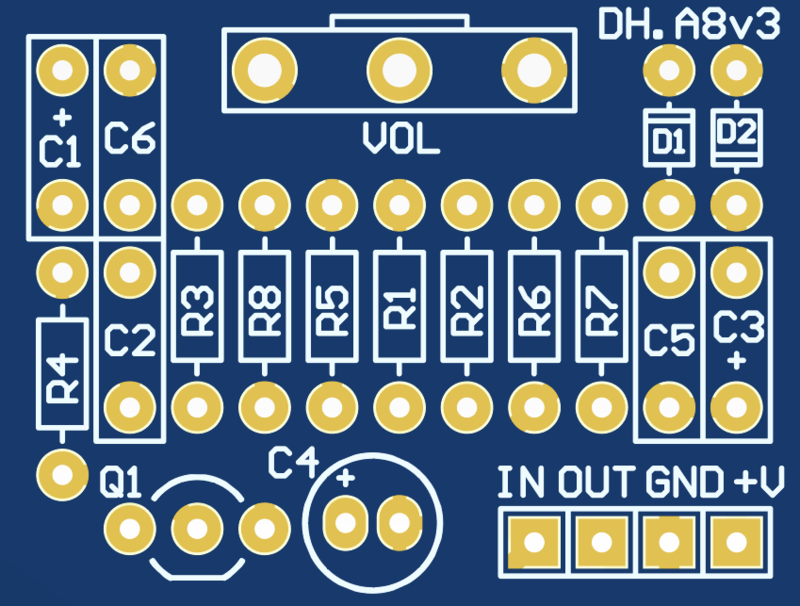
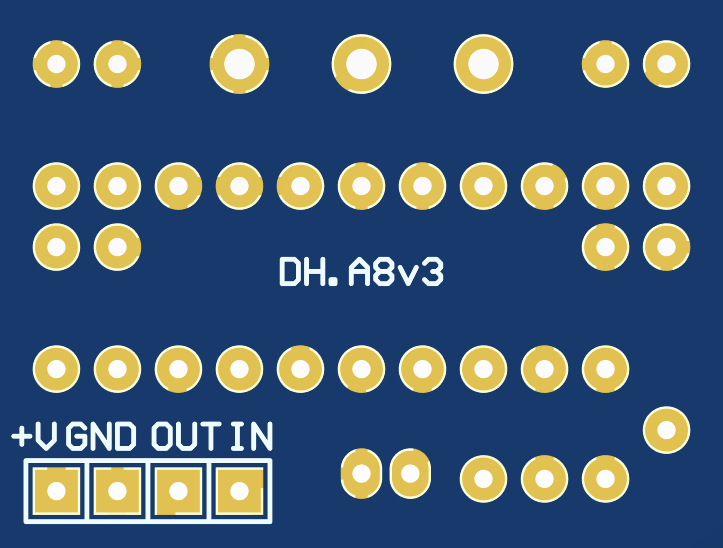
PCB SCHEMATIC
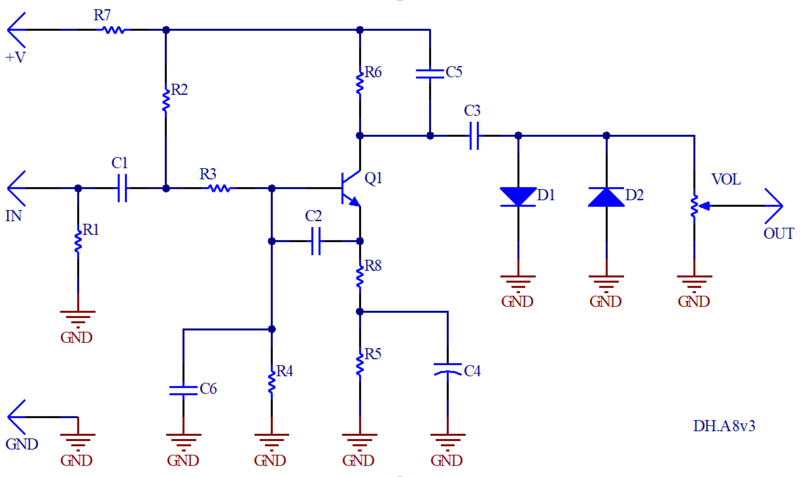
The following table shows several projects that you can build with the DH.A8 PCB. Note that some components are jumpers or are not mounted.
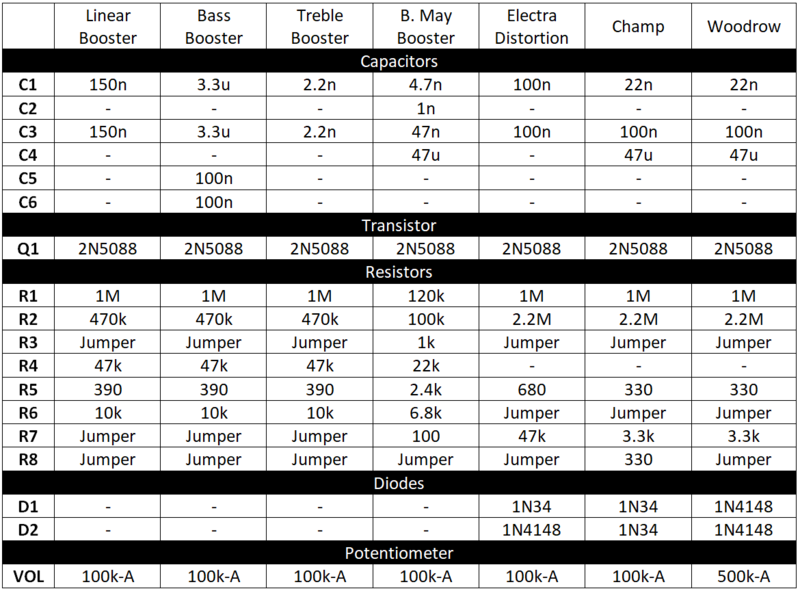
GENERAL DESCRIPTION OF COMPONENTS
Resistors
Use a multimeter or the color bands to obtain the resistance value. Resistors do not have polarity, you can place them in any direction.

Electrolytic capacitors
Electrolytic capacitors have their value printed on them. The negative polarity pin is indicated by a white strip along the can. They also have a longer leg indicating the positive pin. The maximum voltage rating never can be exceeded, make sure you are using at least double voltage rating than your power supply. For example, if you are using a 9V power supply, use a electrolytic capacitor with at least 18V maximum voltage rating.
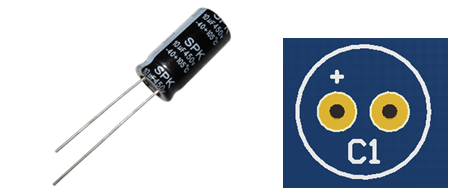
Polyester capacitors
Polyester capacitors have their value marked with three numbers. Read as picofarads (pF), the first two are the 1st and 2nd digits and the third is the multiplier code. These capacitors do not have polarity, you can place them in any direction.

Ceramic capacitors
Ceramic capacitors have their value marked with three numbers. Read as picofarads (pF), the first two are the 1st and 2nd digits and the third is the multiplier code. These capacitors do not have polarity, you can assemble them in any direction.
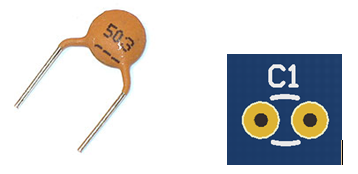
Diodes
Diodes have their model printed on them. The polarity (cathode) is indicated by the ring near the side. This ring is also marked on the PCB.
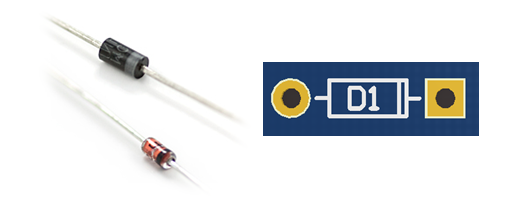
Led diodes
Led diodes have polarity, the cathode is indicated as a flat surface on the side of the diode and also it is the shorter led. On the PCB, the cathode is marked as a flat side and anode as a round side.

Transistors
Transistors are three terminals components and their model is printed on them. To indicate the correct orientation, one side of the transistor is flat and the other one is round.
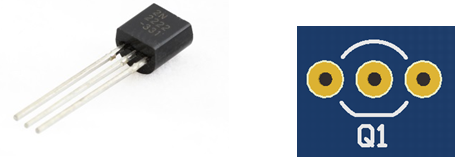
Potentiometers
Potentiometers have their resistance value marked on them. They are marked with A, B or C for logarithmic, linear and reverse logarithmic, respectively.

